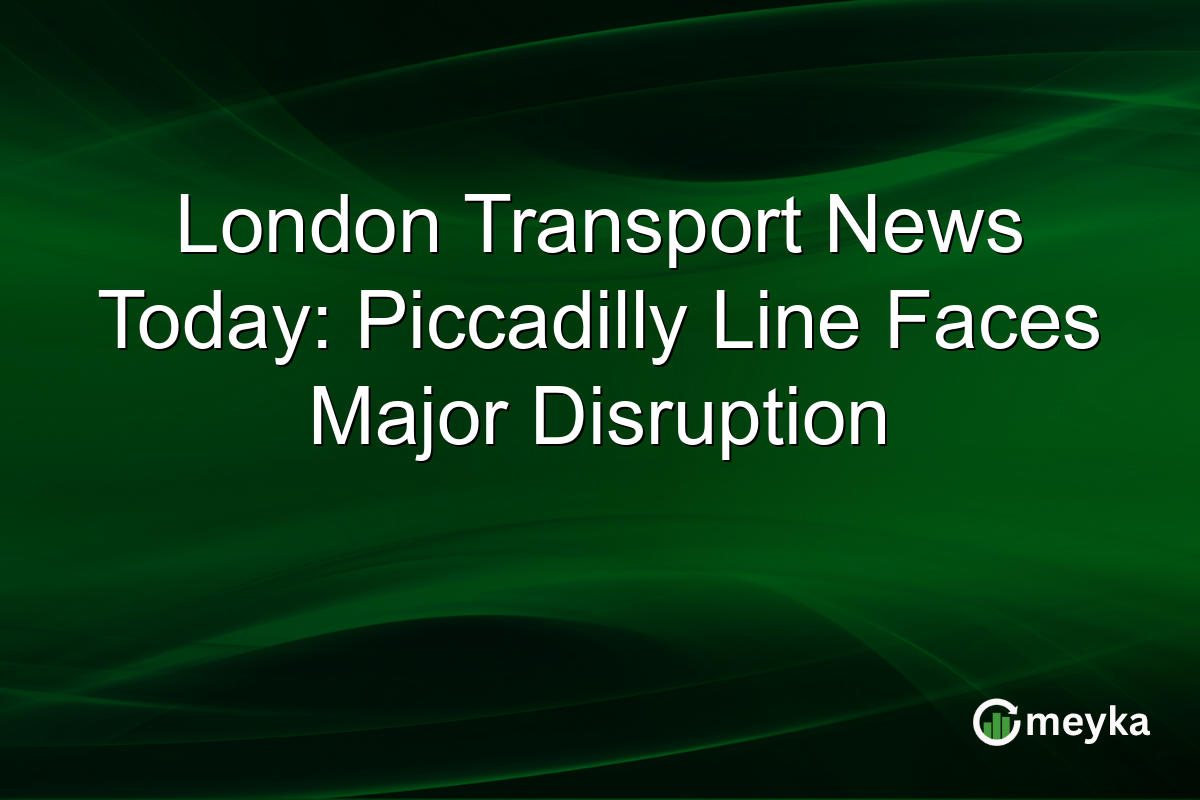London Transport News Today: Piccadilly Line Faces Major Disruption
The Piccadilly Line is making headlines today for all the wrong reasons. With significant delays plaguing London commuters, the issue stems from ongoing strikes and persistent technical failures. This disruption on the London Underground is not just causing headaches for travelers but is also significantly impacting the business community. As the backbone for many workers, these interruptions raise concerns about productivity losses, increased business costs, and broader effects on the UK economy.
Understanding the Piccadilly Line Disruption
The ongoing disruption on the Piccadilly Line is mainly due to labor strikes and technical issues. These strikes are part of broader transport strikes across the UK, affecting multiple subway lines and causing widespread London Underground delays. Strikes are pushing for better wages and working conditions, leading to a standstill on one of the city’s busiest routes.
Impact on Business Commuters
Businesses across London are feeling the impact. The Piccadilly Line serves as a critical route for many workers heading to the financial districts. Delays and cancellations are leading to missed meetings and reduced productivity. According to a recent Bloomberg report, businesses could see a significant uptick in costs due to alternative travel arrangements.
Broader Economic Implications
This situation exacerbates existing challenges for the UK economy, already strained by inflation and slow growth. Transport issues contribute to a negative sentiment around business efficiency and reliability, potentially influencing investment decisions. A CNBC analysis suggests potential long-term effects on London’s attractiveness as a business hub, highlighting the importance of a reliable transport system.
Looking Ahead: Solutions and Strategies
London’s public transport system, including the Piccadilly Line, needs strategic interventions to enhance reliability. This could involve technological upgrades, revised labor agreements, and increased investment in infrastructure. For companies, adapting to flexible work arrangements and investing in telecommuting solutions can mitigate some immediate impacts. This shows a need for collaboration between business leaders and policymakers to ensure sustainable commuting solutions.
Final Thoughts
The disruption on the Piccadilly Line underscores a larger issue within London’s transport system. Businesses must adapt to minimize losses, while city officials need long-term solutions to restore faith in public transport. As an AI-powered financial platform, Meyka can provide real-time insights to help businesses navigate these challenges effectively, offering predictive analytics and data-driven strategies. Staying informed and prepared will be key as London navigates these transport challenges.
FAQs
The disruption is due to labor strikes and technical failures impacting service reliability on the Piccadilly Line and across the London Underground. Strikes are driven by calls for better wages and conditions.
Businesses face productivity losses and increased costs. Delayed commutes impact meeting schedules and workflow, requiring alternative travel or flexible work setups, adding to expenses.
Beyond immediate business impacts, sustained transport issues could hurt London’s business image, affecting investment and growth. Reliable transport is vital for maintaining economic competitiveness.
Disclaimer:
This is for information only, not financial advice. Always do your research.






